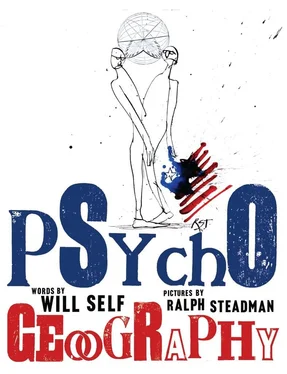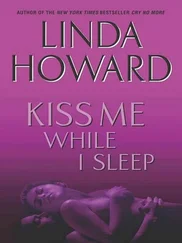What became clear to me in the short term was how wrong I’d been: at the back end of 2001, all the way through to March 2003, the numbers in Britain opposing the West’s interventionism grew and grew. For every ‘comrade’ uttered at a swimming-pool meeting, a hundred more rushed to the colours, rallying beneath a burning Stars and Stripes. The climacteric came for me when a good friend told me how he had wept with joy to see the flag of the USA set light to in Whitehall.

Now, hang on a minute, I thought: I’m an American. And ever since a little — and very understandable — contretemps with the black shirts of Homeland Security, as I was entering the States in 2002 (a trifling matter of drugs convictions), I had been compelled to activate my citizenship and travel to the US on a US passport. Yet even without this very personal goad, I like to think the sheer mirror-imaging of one array of Manicheans by another would have jibed, and made me realise that what was needed here was a little less ideology — not still more; a little less posturing about human rights and a little more hand-to-hand contact.
So much to heal with my feet: along with the semi-self-hatred of a demi-Jew, I now had the internecine conflict between my American and my English sides. Not that this was of a form that my parents would have understood, dying as they both had, before the spectacularists really got going. Nor was theirs a transatlantic marriage fraught by the way either of them pronounced ‘either’. True, my father, towards the end of his own life, was subject to saying that my mother’s might have been happier if she’d married ‘a nice, little Jewish man’, but I never remember him saying anything at all about the fact that his second wife was an American.
As for my mother, she was bipartisan in the extreme: opining at one and the same time that she loathed what the States had become politically, while never for a second dreaming of renouncing her citizenship; and, indeed, taking the trouble to ensure that my brother, Jonathan, and I would share it.
After she died, I found a letter in my mother’s papers, apparently solicited by her from a cousin in Ohio. It’s dated 1980 and this cousin writes that, on cleaning out his basement, he came upon a few books belonging to my great-grandfather. One of these, a prayer book published in Russia in 1883, had some Hebrew handwriting on its end papers. This, the cousin took the trouble to have translated.
It’s slim pickings. Written in November 1919, on the first page my great-grandfather employs the Star of David as a device and writes in each section, thus: ‘My name. This is. The ritual slaughterer Isaac son of Rabbi Yehuda Zalkind or Rosenbloom. Born in Villna.’ The rest is a list of holy books the patriarch particularly favoured, some proverbs and a few terse remarks about his off spring. Isaac’s second son, my grandfather, is glossed: ‘My son Yaakov was born the day after Yom Kippur. It was a Tuesday at 6.00 in the morning. October 7, 1891. 24 Watrin Street [sic?], America.’
Why thanks, Isaac, that really hammers it down. It is almost as if you anticipated the topographical obsession of your descendant, and decided to utterly frustrate it. It’s beautifully succinct, that address; expressing an ideation, I would say, as much as a location. In its way, my great-grandfather’s imagining of America was as bald as any spectacularist’s.
My mother spoke little of her childhood and was profoundly uneasy with her Jewishness. She denied ever having been bas mitzvahed — which was untrue. In retrospect, she was a typical, third-generation immigrant. At one time my mother implied that we were Poles, at another, Russians. Villna, certainly, is in Belarus. I suspect she either didn’t know, didn’t want to know, and maybe even didn’t care. The ‘Rosenbloom’ was, so far as she was concerned, an insult; and being by nature a resentful person, she liked to dwell on this. She bought the old canard that this was a joke name, imposed on us by wiseacre Ellis Island officialdom, probably Irish-Americans. In due course my Uncle Bob changed his name to Ross.
From where did we come to New York? And, more importantly, how? I know not. Isaac writes: ‘I left Romshishiak Falk Havana on September 11, 1888. I came to America November 26, 1888 on Wednesday.’ Is this a progression of places: Romshishiak — Falk — Havana, as Joyce summed up his itinerary for the 1900s: ‘Trieste — Zurich — Paris’? The timing would seem to suggest it. One thing is for certain: whatever his route, my great-grandfather didn’t walk to New York.

Enough. 7.30 a.m., Wednesday 29 November 2006. Coffee drunk, cigarette smoked, bowels evacuated, and I’m off, tiptoeing from the Victorian house in Stockwell where my wife and children are still abed. A four-storey, terraced house I’ve lived and written in this last decade, gradually cluttering up the locale with more and more narrative, on paper and in memory.
I’m keyed up as I head off along the road; the sky behind the block of flats ahead is cloudless and still a paving-stone grey; yet it brightens from pace to pace — the day will be clear. I’m conscious that even if I’ll only be gone a matter of days I will not return from the walk to New York the same man. I shall have learnt something. Paul Theroux writes, in The Great Railway Bazaar , of sliding past the backs of London houses, as the first train of many carries him off. At the foot of the railway embankment properly settled lives are piled — cucumber frames and washing lines effulgent in the morning sunlight — while with each click-clackety mile, the writer becomes more exiguous, more of an observer.
But here, in Stockwell, striding down to the Wandsworth Road and working my way through the redbrick blocks of the interwar, London County Council flats, I’m still heavily embodied. The hydrocephalic brow of Lambeth College — a building of surpassing ugliness, Brutalism as deformity — has featured in one of my stories, as has this very route, set down — if not exactly immortalised — in another of my tales, ‘The Five Swing Walk’.
I have limned then hymned the fly-tipped garbage at the bottom of these flats: the Stella Artois boxes, crushed picnic chairs, torn-out MDF kitchen units and garish plastic toys — even the swollen gonads of the humped, black rubbish bags. I have meditated upon our local equivalents of a catafalque — angle irons sprouting from brick, strung with barbed wire and steel mesh, webbed with polythene — more times than I care to think. Oft times London is a heavy coffin, borne upon such security ornamentation.

The wholesale fruit and vegetable market at Nine Elms is stirring, diesels cough and splutter. Casual workers — Kosovan, by the looks of them — clamber over the wall and down on to a vertically aligned pallet. They’ve come a long way from the Balkans to take this short cut through the Patmore Estate. They limp off ahead of me between the chequerboard blocks along Thessaly Road. I walk the children to Battersea Park down this road, I cycle this way if I am going anywhere in the west of London. Always, the small parade of shops beneath the last block of flats has struck me as the saddest, the most miserable encrustation of commerce: FF Foodfare, Better Buys of Battersea, Thessaly Newsagents — stinky little caves full of tomato soup, sugar and cut-price alcohol.
Читать дальше















